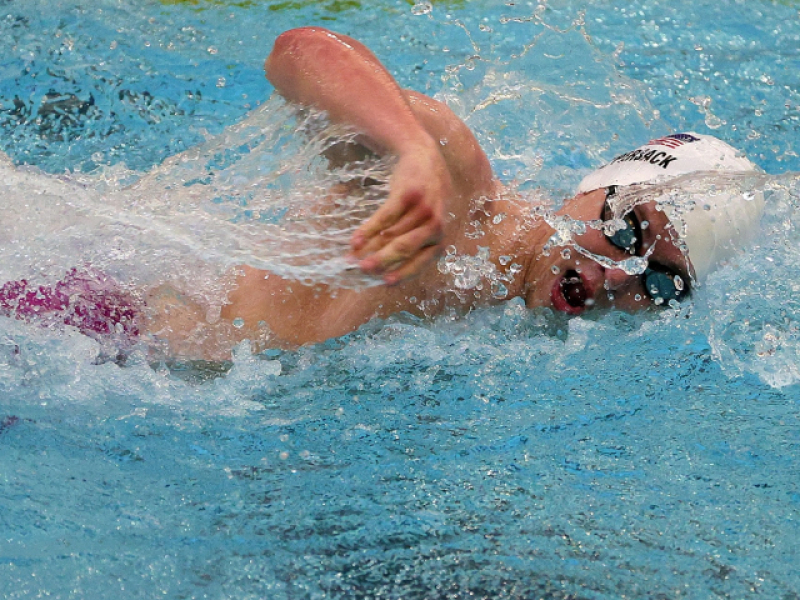
A group of Ivy League parents are denouncing NCAA for allowing a biological male athlete to continue competing in women's sports, calling it an "utter abandonment of women and girls" in a letter.
A coalition of concerned parents from five Ivy League schools expressed their disapproval over the the NCAA's continued support for transgender swimmer Lia Thomas, who on Thursday won the 500-yard freestyle in the collegiate national championships. In a letter, the parents detailed their children's plight in competing against Thomas, who was born a man but now identifies as a woman and competes against women in swimming competitions.
Ivy League parents described how they "witnessed firsthand the utter abandonment of women and girls" under the National Collegiate Athletic Association's (NCAA) continued support for transgender athletes in women's sports, the New York Post reported.
"Ironically, during Women's History Month, the subjugation of our daughters continues at the Women's NCAA Swimming Championships when Lia Thomas, a biological male, took a lane and a podium from a deserving female swimmer on Thursday," the parents lamented in the letter, expressing how "furious" they are for how "grossly unfair" it was to let Thomas participate in women's sports and go on to break women's records.
The Ivy League parents highlighted how "a new ideology ruled," in which "transwomen are women" with "no exceptions" and that the girls' concerns about safety and fairness were labeled "transphobic." When the female-born athletes spoke out about the injustice and how "uncomfortable the locker rooms were with male nudity," they were merely "turned away" by coaches, athletic departments, and administrations.
The Ivy League parents accused NCAA and its colleges of pushing a "singular message" with "coercive and emotionally blackmailing written instructions" at Harvard and Upenn, where "everyone was cowed into silence" while schools campaigned behind Thomas. The group also took aim at athletic associations' transgender policy, which keep redefining the metrics of hormone levels to "level out" the playing field between men and women.
But the Ivy League parents argued, "A male body cannot become a female body. A woman is not a disadvantaged man."
The coalition continued to name Lia Thomas, Laurel Hubbard, Cece Telfer, Hannah Mouncey, Stephanie Barrett, Rachel McKinnon, and Andraya Yearwood as some of the "male-bodied athletes that have robbed thousands of women of fair treatment in sport," lamenting that women now "pay a deep psychological toll" from their participation in women's sports.
The Ivy League parents are not alone in their protest against Thomas and the number of transgender male-born athletes who participate in women's sports. Accordingt to Fox News, Virginia Tech swimmer Reka Gyorgy spoke out about how she missed out on competing in the finals of the 500 free at the NCAA Championships on Thursday when the NCAA allowed transgender athletes to compete against biological females.
Gyorgy did not make the cut-off to get into the consolation final in the 500 free and finished in 17th place. In a letter she wrote and posted to her private Instagram account on Sunday, she argued that she missed out on making the cut-off because Thomas dominated the race, finishing with a 4:33.82 in the preliminaries and earning the national champion title after winning the race with a time of 4:33.24.
"I would like to critique the NCAA rules that allow her to compete against us, who are biologically women," Gyorgy wrote, despite saying she "respect[s] and full stand[s] with Lia Thomas." "I'm writing this letter right now in hopes that the NCAA will open their eyes and change these rules in the future."
Gyorgy, who hails from Hungary and has competed in the 200-meter backstroke at the 2016 Summer Games, argued, "It doesn't promote our sport in a good way and I think it is disrespectful against the biologically female swimmers who are competing in the NCAA."
Gyorgy lamented that she felt like "the final spot was taken from me because of the NCAA's decision to let someone who is not a biological female compete."



















